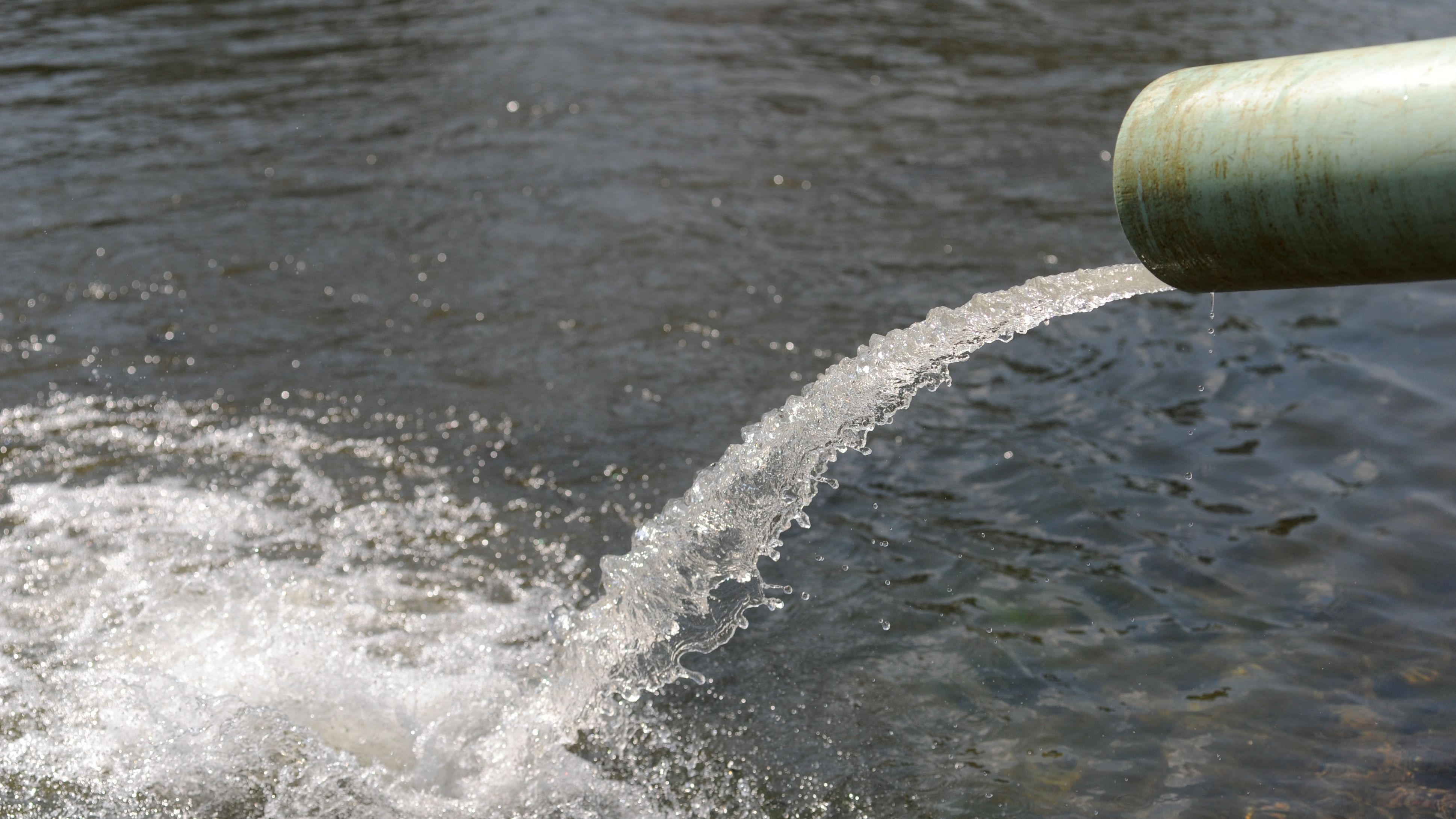
Representative image showing water flowing into a lake
Credit: iStock Photo
The Lok Sabha in its last session passed the Water Amendment (Pollution and Prevention) Act 2024. It has amended many clauses of the original Water Act of 1974, which was the first pioneering legislation to protect the water resources of the country.
During the discussions, Environment Minister Bhupendra Yadav said, “It is geared towards ease of doing business, and it does not protect industries but helps to generate employment opportunities and that people must be taken along and must be inspired to make progress.” The new Act, he said, will also lead to greater transparency in dealing with various issues related to water pollution.
Water is a common property resource that needs to be harnessed with great care. India has 17 per cent of the world’s population and only 4 per cent of the freshwater resources. Thus it becomes more imperative to conserve, protect and stop those activities that lead to the destruction of this precious, scarce resource.
According to the NITI Aayog, the water crisis in the country is more threatening than is perceived and fulfilling the water needs for the rising population and meeting the needs of industries and agriculture is going to be the biggest challenge.
Is this new Act an improvement over the half-century-old Act of 1974? Does this address the concerns outlined by the governmental think tank? Will the provisions of the Act deter the polluting units that lead to
the death of the living ecosystem of free-flowing water in the rivers?
The Act of 1974 laid the foundation for the institutional framework of establishing a Central Pollution Control Board (CPCB) and State Pollution Control Boards (SPCBs) to monitor and prevent contamination of public water resources like rivers from sewage and industrial effluents. The role of the CPCB is to collect data and set technical standards to monitor water pollution while SPCBs enforce compliance with penalties and imprisonment of up to six years for serious violations.
These pro-active provisions of the Act were negated by the government by denying autonomy to the CPCB or SPCBs, low grants to implement the legal proceedings and lack of human resources to monitor the large scale of polluting units that came with industrialisation. The failure of the Act is visible across the country when we see the rivers that have been turned into sewers.
According to the CPCB, 46% of the 603 rivers in the country remained polluted in 2022. The Jal Shakti Ministry admitted in the Lok Sabha that the second-most polluted river is Sabarmati, in Gujarat, hailed as a model of development for the entire country. The most polluted is Cooum in Tamil Nadu. Irrespective of the political ideology of state governments, the Water Act of 1974 has failed to address the issue of pollution and contamination of freshwater resources in the country.
Logically, the amendment should have addressed these challenges and incorporated provisions to deter any further degradation of water resources. Unfortunately, the Water Act of 2024 has not only diluted the provisions but also has taken away the autonomy of the state government by introducing a clause to override the decisions of the SPCBs in specific cases.
The most regressive element of the amended Act is exempting certain industries from discharging waste water and doing away with imprisonment for violations and imposing fines from Rs 10,000 to Rs 15 lakh. Thus anyone can get away with discharging effluents into the river after paying a fine! In fact, during the five decades the old Act was in existence, there was not a single case of imprisonment for violations.
In a landmark judgement in the Delhi Water Supply and Sewage Vs State of Haryana, the Supreme Court said that “water is a gift of nature,
human hand cannot be permitted to convert this bounty into a curse”.
Recent amendments to the Forest Conservation Act and Water Act dilute the legislation favouring industries with the sole objective of ‘ease of doing businesses’. It has a profound impact on the lives of millions of people and other forms of life.
Ironically, the whole country witnessed the pran pratishta ceremony performed by Prime Minister Narendra Modi at the Ram temple in Ayodhya, whereas there was no coverage when his own government enacted an Act that led to pran dand or
death penalty to destroy life-giving water!
We need to heed the advice of Gandhi who said, “The earth, the air, land, and the water are not an inheritance from our forefathers but on loan from our children. So we have to hand over to them at least as it has been handed over to us.”
Are our government and people willing to follow this advice or do they want to live in the illusion that these Acts are really for the betterment of the larger society?
(The writer is a farmer and Uttara Kannada-based environmentalist)